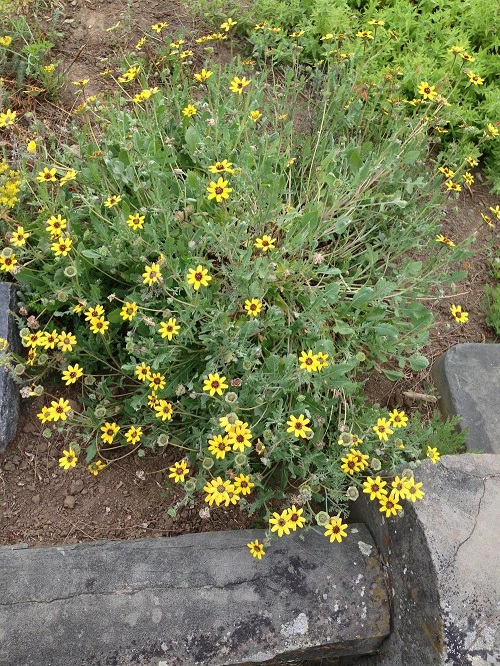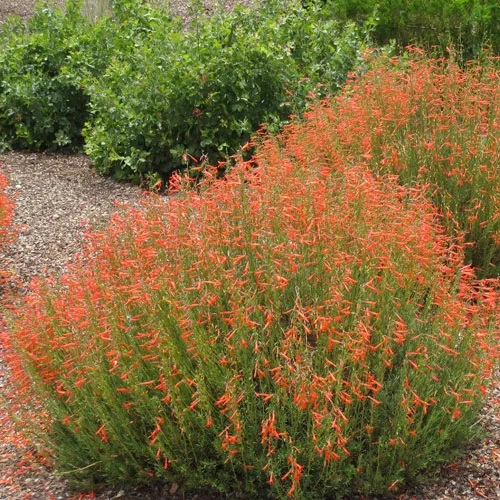If you live in an area where the summer feels intent on roasting you and your plants, try these Best Plants For Extreme Heat Garden!
Of course, your area’s climate plays a major role in how your garden will turn out. However, that does not mean the heat can prevent you from having a beautiful one. All you need are tough and durable plants to thrive in the full sun and extreme heat. So, here are the plants to grow if you get a lot of sunny days and extreme heat.
Best Plants For Extreme Heat Garden
1. Lantana
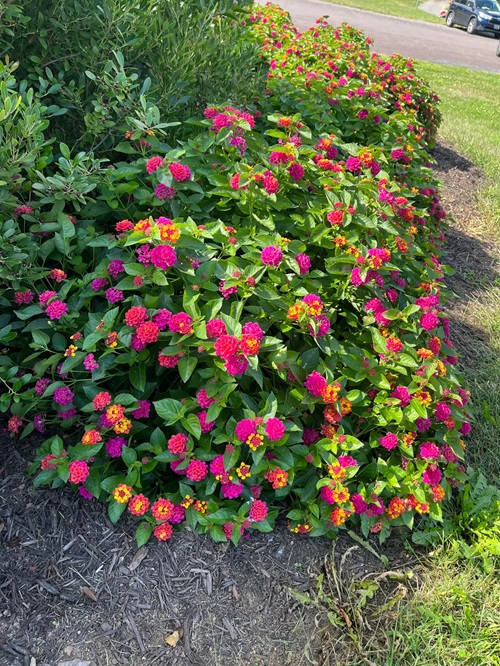
Botanical Name: Lantana camara
USDA Zones: 8 to 11
Lantanas are pretty much a workhorse for your garden landscape. As perennials, they can bloom continuously until frost or even the whole year. They feature tiny blooms in a myriad of colors. The trick to getting blooms is to provide this plant with at least eight hours of full sun every day.
They prefer slightly acidic, well-draining soil with a pH range between 6.0 to 6.5. While newly planted lantanas will need regular watering, established ones are drought-tolerant and you can start with these varieties.
2. Oleander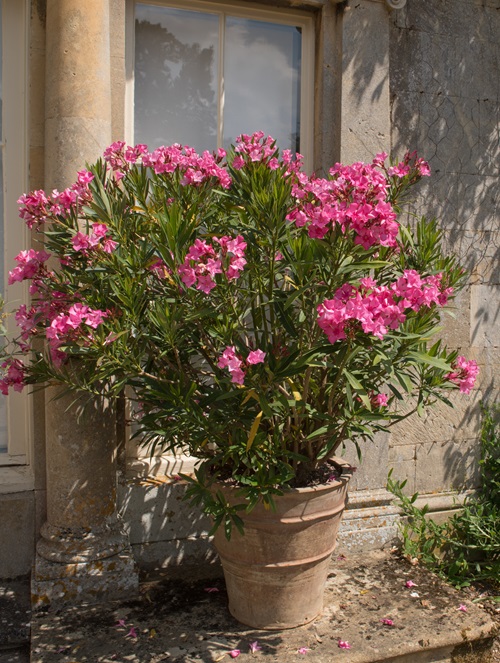
Botanical Name: Nerium oleander
USDA Zones: 8b to 11
A large, flowering shrub that needs little to no care, oleander just needs to be established in your garden to be both drought-tolerant and heat-tolerant. It even thrives in the coastal regions of South Carolina, tolerating salt spray and wind in seaside gardens.
This medium to fast-growing plant can easily grow a foot or two in a year, reaching a mature height of 8 to 12 feet! Be careful, though, it’s extremely toxic.
3. Threadleaf Coreopsis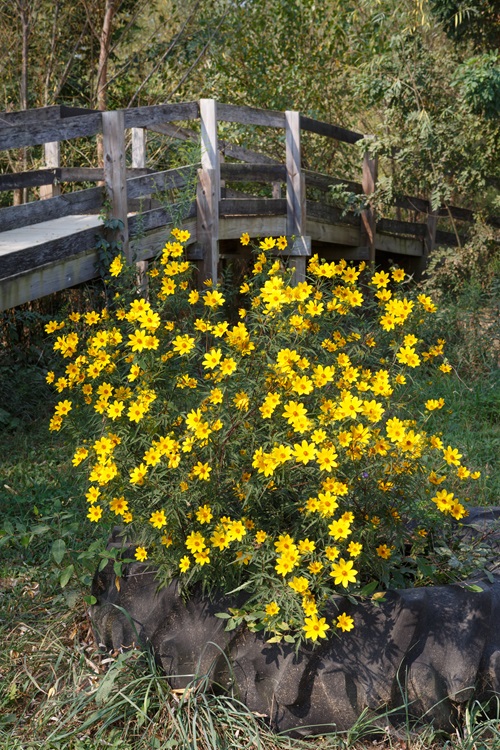
Botanical Name: Coreopsis verticillata
USDA Zones: 3 to 9
Searching for the perfect low-maintenance, heat-tolerant plant to border your hot garden? Look no further than the threadleaf coreopsis! Growing to about 3 feet in height, the showy, daisy-like flowers with darker centers look like perfection over a flower bed.
While annual coreopsis varieties bloom from early summer through fall, perennials start blooming from the second year after the seeds are sown.
4. Silver King Artemisia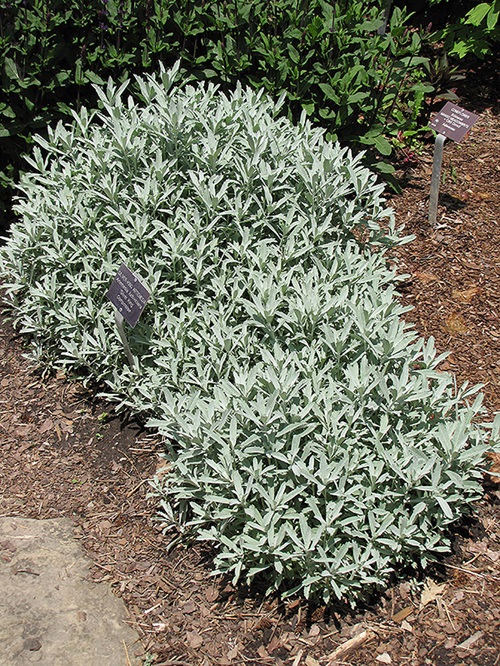
Botanical Name: Artemisia ludoviciana
USDA Zones: 4 to 9
Biased towards attractive foliage more than flowers? With its striking, fine-textured silver leaves, the ‘Silver King’ artemisia will surely steal your heart. The leaves start out green and turn gray as spring progresses.
Plant it in a container near your garden border to contain its aggressive spreading. This plant is also deer-resistant, in addition to being drought—and heat-tolerant.
5. Chocolate Flower
Botanical Name: Berlandiera lyrata
USDA Zones: 4 to 10
Native to the southern states of North America, namely Texas, Oklahoma, Arkansas, and New Mexico, the chocolate flower grows exceptionally well in frost-free areas and can even bloom all year!
This deer-resistant plant prefers to grow in grassy areas or rocky, well-draining soil that has low organic content and a pH range of 6.0- 7.8. Try these chocolate-colored flowers as well if you like the hue.
6. Red Yucca
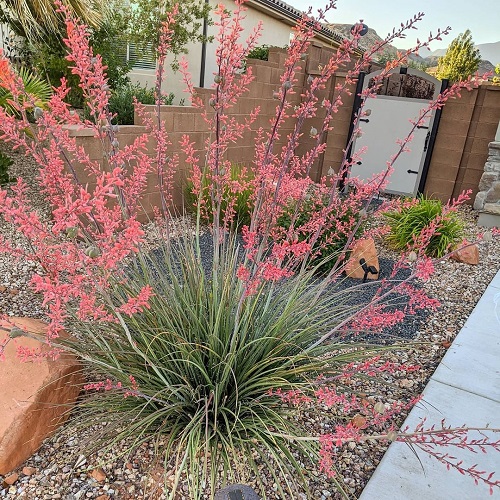
Botanical Name: Hesperaloe parviflora
USDA Zones: 5 to 12
Succulents, of course, would thrive in dry, xeric climates, and red yucca is one that you need in your garden! This succulent shrub showcases evergreen leaves alongside spikes of fiery red flowers. But you could also find varieties with coral or yellow ones!
Besides being heat—and drought-tolerant, the red yucca is tough enough to withstand temperatures as high as 38 C for short periods.
7. Bird of Paradise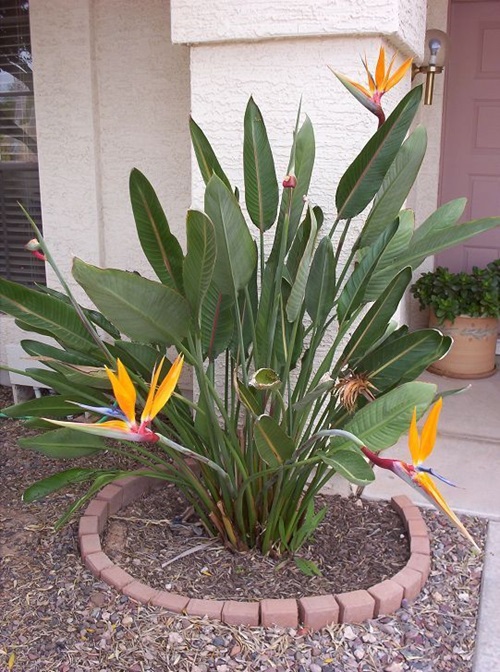
Botanical Name: Strelitzia reginae
USDA Zones: 9 to 12
Also known as the “crane flower,” grow the Bird of Paradise in a spot in your garden that gets full sun! An apt name for a unique plant, the Bird of Paradise showcases lovely flowers that resemble a tropical bird in flight.
This one can easily survive in an extreme heat garden and withstand about 40 C (100 F) high temperatures. It can also tolerate up to 43-45 C (110-115), but then the flowers will start losing their color.
8. Black Dalea
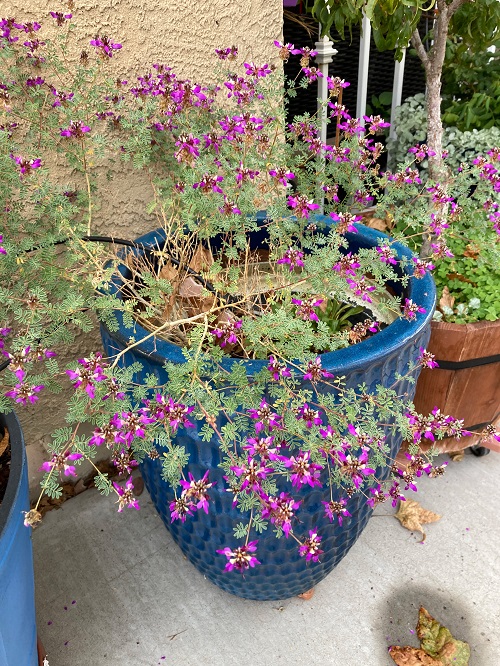
Botanical Name: Dalea frutescens
USDA Zones: 8b to 12
Whether you are looking for a heat-tolerant ground cover or something to add to your rock garden, black dalea can be the perfect plant! Its mounding growth habit, combined with its low height and feathery foliage adorned with small purple flowers, makes for quite a unique addition to any garden.
Be sure to provide it with good drainage and full sun, and it won’t have much demand! You could then enjoy the small clusters of pea-like purple flowers throughout late summer into fall.
9. Pine-Needle Penstemon
Botanical Name: Penstemon pinifolius
USDA Zones: 4 to 10
Native to the southwestern USA, the penstemon has a few specific demands. First, it doesn’t like to be crowded by other plants in the garden and needs “elbow room.” It also requires as much sun as you can possibly provide, in addition to well-draining soil.
The reason why you must have it in your garden besides its lush evergreen leaves is because of its beautiful flowers that hummingbirds adore. If you have rabbits wreaking havoc in your garden, worry not for this plant is rabbit-resistant!
10. Firecracker Flower
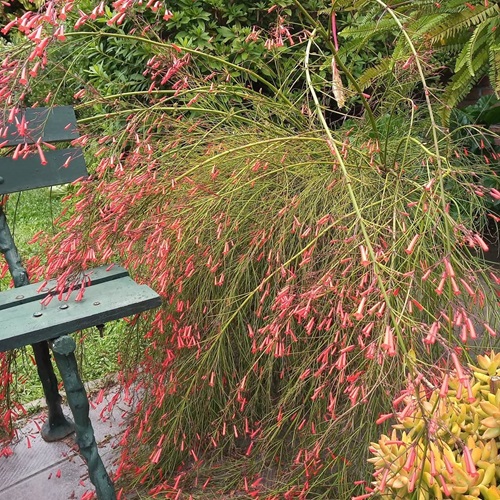
Botanical Name: Ruselia equisetiformis
USDA Zones: 9 to 11
The firecracker, with its long stems and leaves, resembles a weeping willow. This cascading plant features small but gorgeous crimson flowers blooming alongside lush green needle-like leaves. If you want your firecracker to flower, provide it at least six hours of full sun daily.
Ensure regular watering, even during the vegetative period between February and October. The soil must be moist but not soggy.
11. Moss Rose
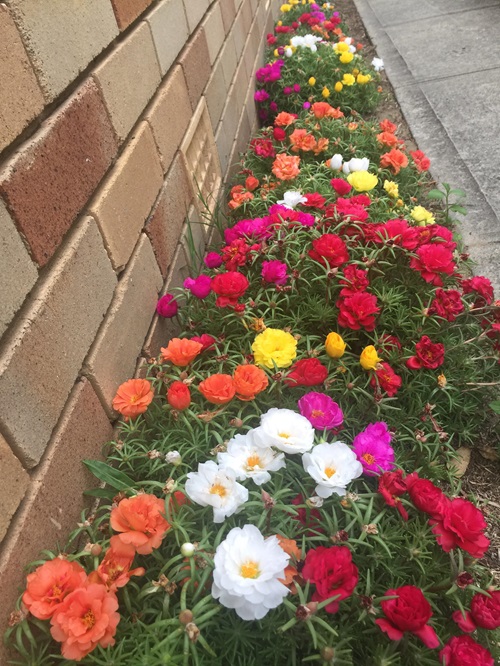
Botanical Name: Portulaca grandiflora
USDA Zones: 3 to 11
The highlight of the moss rose is its blooms with ruffled petals in colors like red, yellow, orange, white, and even bi-colors, which show only if you provide the plant six to eight hours of full sun.
Though the moss rose is heat-tolerant and drought-tolerant once established, you do need to water it regularly in the hot, dry summer. Moss roses do not demand much because they can grow quite well in less fertile soils without needing extra fertilizer. Here are some great tips to grow it.
12. Holy Basil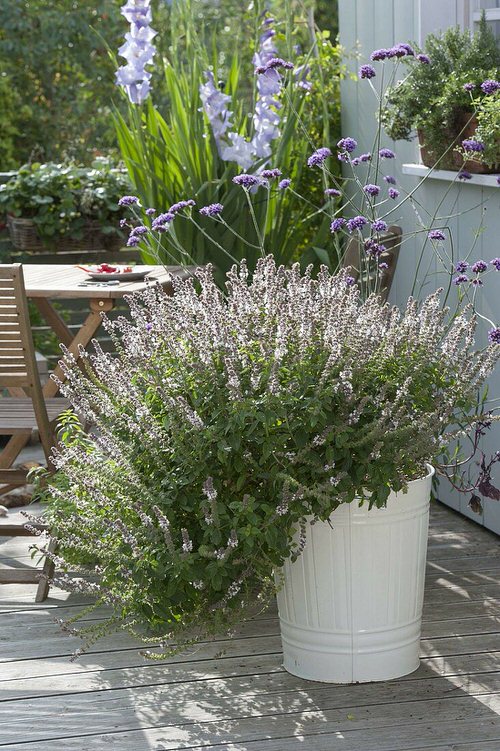
Botanical Name: Ocimum tenuiflorum
USDA Zones: 9 to 11
Known as ‘Tulsi’ in India, the holy basil is a perennial herb rich in antioxidants and flavonoids. So, in addition to loving hot gardens, this plant can also help your health!
The leaves of this versatile culinary herb, both in fresh and dried forms, could be used in a variety of dishes or even as a soothing tea whenever you have the flu! It can also easily survive extreme temperatures of about 40 C (100 F) and beyond.
Did you choose to grow the basil for some culinary experiments? Or did you fall in love with the uniqueness of the Bird of Paradise? Let us know in the comments below which plant you choose to grow in your extreme-heat garden!


